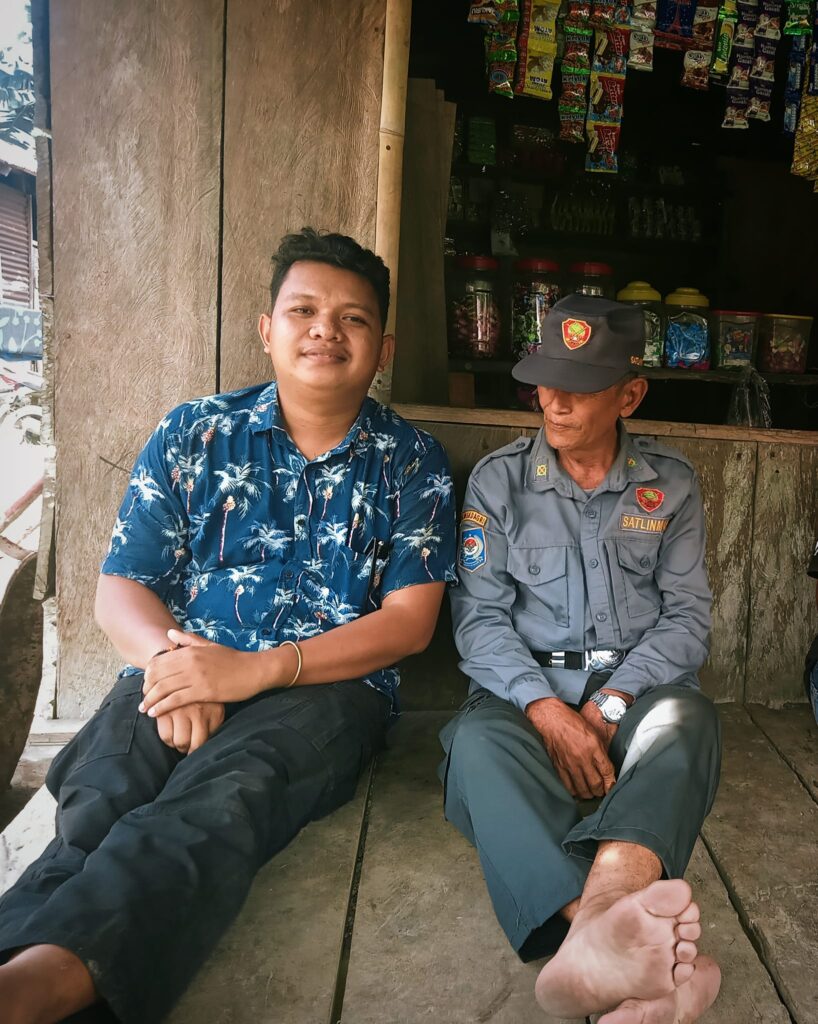Hearing the term development, it is inseparable from the existence of change. In the context of development, the expected change is certainly a progressive change. Meanwhile, to achieve implementing social inclusion (equality), a process is needed. The development process at the village level cannot be separated from the role of various parties, such as the village government, BPD, Karang Taruna groups, farmer groups and Women Farmer Groups (KWT). In addition, it is also necessary to involve marginalized groups such as indigenous peoples so that the aspirations and needs of all parties are accommodated in the village development process.
Marginalized groups are one of the important groups to be involved in the development process in order to realize inclusive and sustainable development. Inclusive development, quoted from Rauniyar (2010), refers to increasing the distribution of welfare by increasing average achievement. Inclusive development not only achieved quantitatively, but focused on equitable welfare.
Every level of society is important to participate in encouraging the distribution of equitable and sustainable economic welfare. Inclusive village development is expected to be able to provide equitable and equal welfare for village communities. The role of youth as drivers of change with their ideas and concepts is an important asset in the village development process.
"Youth must of course have a vision and mission for an inclusive movement by encouraging marginalized groups in the village to participate in development activities," said Reynald, Village Companion from YCMM.
Paul Kristofel Samangilailai is a young man from Nemnemleleu Tengah Hamlet, Mentawai Islands who studied at Taman Siswa University, Padang. He was an honorary worker from 2020 to 2021 as a livestock technician. During his college years, he often served at the Solagracia Padang Church, both as a music minister, singer, preacher, and visiting the sick and other congregations in Padang City. His interest in village service and empowerment began when he joined YCMM in early 2021 through the Disaster Resilient Village Program (Destana) with Charitas Germany.
"I learned a lot of things, one of which is the importance of paying attention to the needs of women, the elderly, the disabled and children in the context of disasters. Even their accessibility to get to evacuation sites is not yet well provided," said Paul.
By increasing social inclusion in indigenous communities through programs SIPAUMAT initiated by YCMM in her village, she is now starting to learn about the importance of gender equality. For her, gender equality is more about ensuring that marginalized groups are involved in every decision-making process for village development.
"In addition, it is also an effort to encourage villages to be able to intensify their performance to reach marginalized communities," he added.
The man born on February 7, 1994 saw what YCMM did in assisting indigenous people in the Mentawai Islands and ensuring that the capacity of village officials was clearly changing. Now he has started campaigning for the mainstreaming of GEDSI in the GKPM Nemnemleleu Church Youth group so that young people will increasingly understand that everyone has the same rights in society.
When he first voiced GEDSI at the Church youth level, there were dissenting voices who thought that what was conveyed was the usual message conveyed by activists. But gradually the community began to see that what he did with YCMM had been able to increase the participation of women who were now starting to argue in village forums. Even some people with disabilities also began to dare to speak up.
In early 2024, he was asked by the youth and local community to take part in the selection of village officials and nominate himself as a candidate for Head of Nemnemleleu Tengah Hamlet until he was finally elected.
"Since joining YCMM and learning directly about the mentoring activities carried out, I saw how the village government works. There arose a desire to be able to enter the government so that there would be more things he could do for his village," said Paul.
Since he took charge of the Nemnemleleu Tengah Hamlet, he has had disaggregated data on women, children, disabilities, female heads of households, and communities with high vulnerability to make it easier to identify the needs of each group, as well as in distributing aid.
"The disaggregated data that I have created is still minimal and this data also duplicates the data that YCMM has done at the beginning of the program. This data makes it easier for us as the Head of Hamlet and the village government to map marginalized groups, vulnerable groups in ensuring that assistance is right on target," he said.
According to him, ensuring social inclusion in his village is by ensuring that no one is left behind. So the disaggregated data helps him in realizing this.
"I hope that with my current role as hamlet head, I can make changes and ensure that the people of Nemnemleleu Village are better than before," he hoped.
Tarida Hernawati said Paul was a young cadre who was brave and capable of taking a position as a village official. It is hoped that Paul can become a real agent of change for the youth and indigenous people of Nemnemleleu Village.
"Paul is a young person who dares to take an active position and role in village government which can motivate other young people to be actively involved in creating social inclusion in village governance," said Tarida, YCMM Program Manager.


